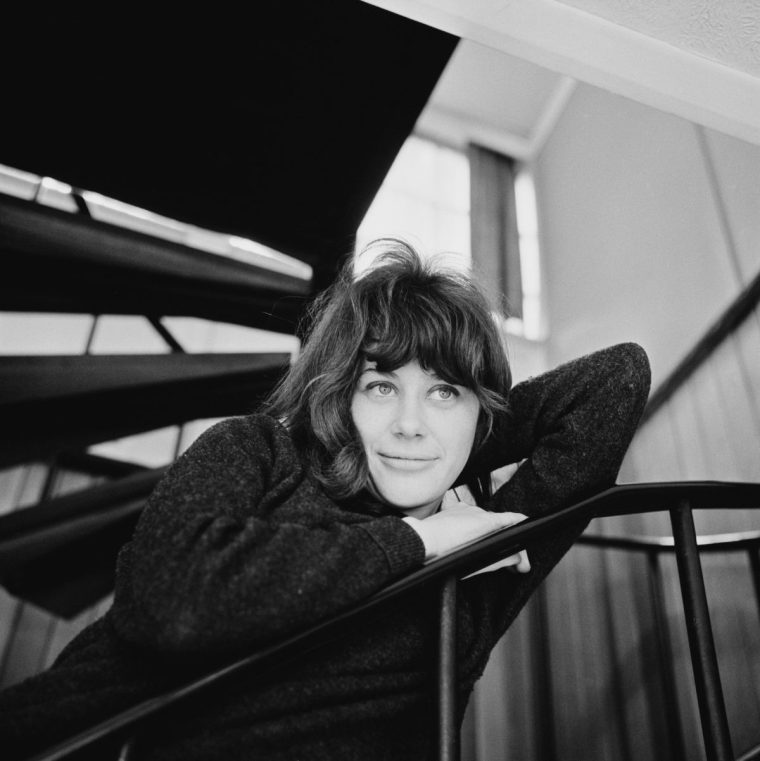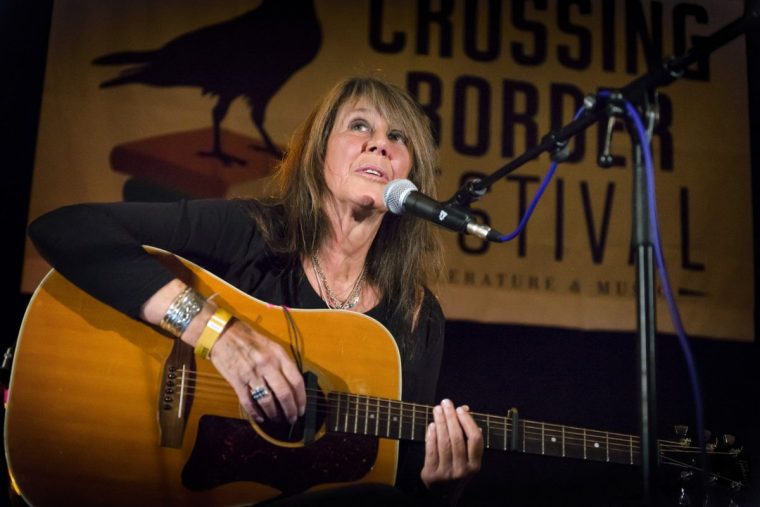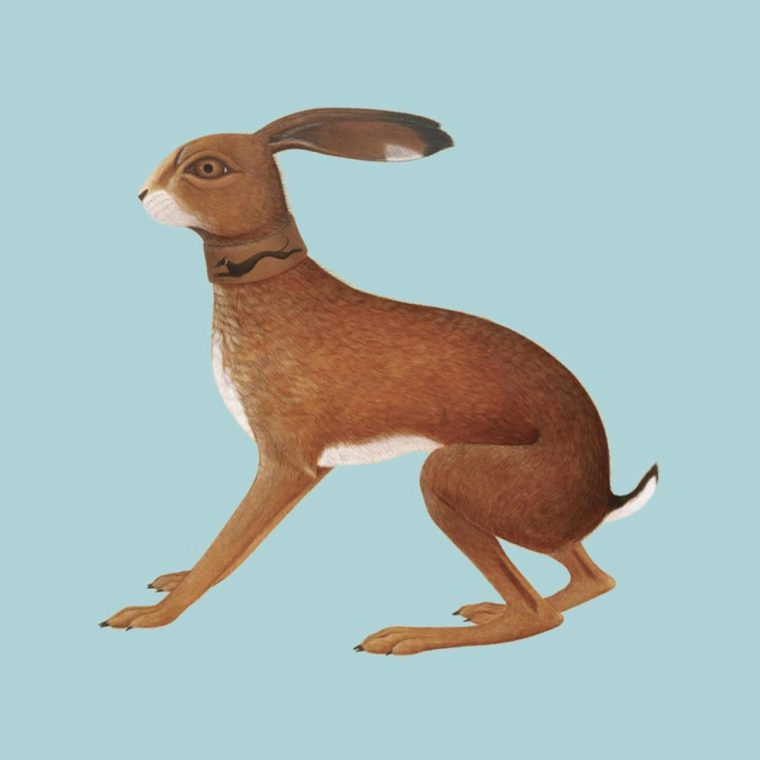In the late 80s, Vashti Bunyan’s children found an old cassette in the back of a drawer in the family home. It was a recording of Bunyan’s first and then only album, 1970’s Just Another Diamond Day, copied by a friend who had it on vinyl.
With nowhere to play it in the house, the children put it on in the car and were astonished to hear their mother singing. At the time, they knew nothing of Bunyan’s short-lived musical career, which was just how she wanted it. “There wasn’t any music in the house and that was deliberate, though I’m not proud of that,” she says now. “But I had decided: if music won’t have me, then I won’t have music.”
The story of how Bunyan abandoned her singing career, only to come back to it 30 years later, is now the stuff of legend. In the mid-60s, she went to Soho’s Denmark Street where she performed songs to producers and was taken on by the Rolling Stones’ former manager and producer, Andrew Loog Oldham, who wanted to turn her into the next Marianne Faithfull. But after a series of false starts where songs were recorded and then shelved, Bunyan fell into a depression and decided to run away.
Turning her back on London, she embarked on a two-year odyssey to join a commune in the Outer Hebrides. She and her then boyfriend, Robert, travelled there with a horse and wagon bought with money loaned to them by the Scottish folk singer, Donovan.
But when they arrived, the commune had no place for them, so they set up home in an abandoned barn on the sparsely populated island of Berneray.

Soon after, Bunyan called up producer Joe Boyd, who helped her record an album she had been writing throughout the journey called Just Another Diamond Day. An acoustic album full of bucolic themes and featuring her singularly delicate vocals, it sounded both timeless and of its time; it has since been called the “sonic sibling” to Nick Drake’s Bryter Layter from 1971, which was also produced by Boyd and featured Bunyan’s arranger Robert Kirby.
But when Just Another Diamond Day came out, no one listened: Bunyan’s record label only pressed a few hundred copies and reviews were lukewarm. “They said they were songs for children, nursery rhymes. Dismiss, dismiss, dismiss,” she recalls, looking pained. And so a disenchanted Bunyan – who was, by now, pregnant with her first child – put aside her dreams and set about raising a family.
But in 1997 Bunyan idly put her name into an online search engine and discovered that she had become a cult figure among a new generation of folk musicians fascinated by the Drake connection.
Devendra Banhart and Joanna Newsom were among the artists who were captivated by this late-60s singer who had made sporadic appearances on TV pop shows and then seemingly vanished. The discovery that they knew of her and her work, Bunyan says, led “something to switch on in me”. And so in 2000, having tracked down the master tapes, she re-released Just Another Diamond Day. This time around sales were strong, allowing her to fund a second album, Lookaftering, and, later, a tour.
I meet Bunyan – who is as quietly spoken as her ethereal singing voice would suggest – in a café in central London. She is down from Edinburgh, where she lives with her partner Al Campbell, to promote Lookaftering, which is being reissued to mark 20 years since its release.
The album – named after a word she invented long ago to describe the act of caring for someone – has the same intimacy and pastoral wonder of her first LP, though comes with more expansive arrangements as well as appearances from Newsom, Banhart, composer Adem Ilhan and the late arranger and Nick Drake collaborator Robert Kirby.

Bunyan – who will be 80 this year – remembers how, when recording the album, she was so low on confidence, she preferred to sing when no one was watching or listening; several of those private demos are included in the reissue.
Hearing it after so long “made me think how withdrawn and timid I sounded”, she says, “and that I would sound different if I recorded it now.” She has warm memories of working with producer Max Richter who “at the end of every take would say, ‘That’s such a good song. Now let’s do it over again.’ He was so human and kind and I’d never really experienced that before from producers.”
In the new sleeve notes, Devendra Banhart describes the album as “a quiet prayer for a world left behind”. Among the stand-out tracks are “If I Were”, a shimmering love song about travelling “to the end of the Earth”, and “Wayward”, which hints at an impatience in Bunyan at the years of domesticity: “Days going by in clouds of flour and white washing/ Life getting lost in a world without end.”
Bunyan recycled the latter’s title for her memoir Wayward: Just Another Life to Live, published in 2022, which documents her early attempts to forge a musical career and her extraordinary journey to the Outer Hebrides.
The picture it paints is of a young woman who is anything but timid: strong enough to shake off familial and societal expectations and to travel and sleep in a wagon, living off porridge and the kindness of strangers.

“I think there was always a core of ‘I’m going to do what I’m going to do and you can’t stop me’,” she reflects. “I was the youngest of three kids and my parents just let me do what I wanted to do. I had a lot of freedom to explore the world, and that maybe gave me the courage to make that journey.
“But I don’t think of it as courage. I think of it as the only thing I could have done at that moment… The journey was frightening at first, but the more I did it – the more I had to find water for the horse, wood for the fire, all those practical things – the better I felt. It really straightened my mind out.”
Just Another Diamond Day was Bunyan’s last stab at making it as a musician. When it failed to take off, she was “mortified by it. I believed all the things people had said about it.” Re-releasing it in 2000, Bunyan braced herself for another critical mauling, but “in fact it was understood for the first time. And it was understood by people who were the age I was when I made it, which was just lovely. And because of that, when I picked up my guitar [to write Lookaftering], I didn’t feel the failure, the disappointment and the pain of before, so the songs started to come through.”
I wonder if now, from the vantage point of success, Bunyan thinks about all the what-ifs. What if a producer had recognised her singular talent in the 60s, rather than trying to mould her into someone else? What if her record label had got behind Just Another Diamond Day and pressed more copies? “I honestly have no regrets about any of it,” she replies. “I think of my music as this orphan child that came back to find me. If things had worked out the way I had wanted them to work out, what would early success have done to my life? I had this tiny baby and I didn’t want to live in London, so in lots of ways I don’t think I’d have coped with it well.”
Nowadays Bunyan takes the ebbs and flows of the music industry in her stride, although if there is one thing that gets her goat it’s the f-word. “I do make a fuss about it, but I am not a folk singer!” she exclaims. “I was completely rejected by the folk fraternity when I was starting out as I was never traditional enough for them. And when Just Another Diamond Day came out, people expected me to turn up in a headscarf and sandals, and I would be in jeans and a T-shirt. So no, I’m not a folk singer.”
How about singer-songwriter? “Well, I don’t love that label either as it doesn’t really describe it at all,” she notes, and then smiles. “But perhaps it’ll have to do.”
‘Lookaftering – Expanded Edition’ is out now on FatCat Records














